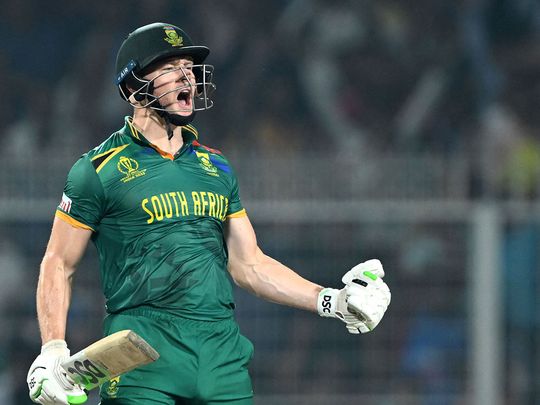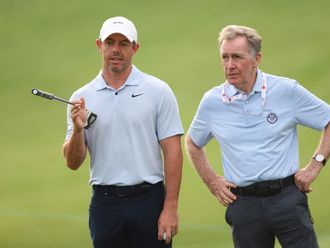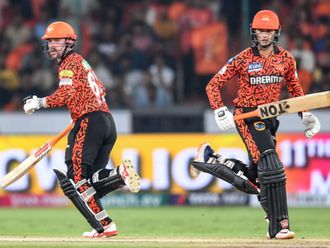
Did South Africa choke again? No, says coach Rob Walter. He has reason to say so. There was no collapse into ignominy; instead, the Proteas fought all the way with their backs to the wall before Australia crossed the semifinal line in the Cricket World Cup. According to the South African coach, choking is when you lose from a winning position. That wasn’t the case at the Eden Gardens on Thursday.
We agree with that. There was no choking in Kolkata, but South Africa have choked in the past. That too in knockout games. Which’s why they can’t shake off the chokers tag.
The tag is unfair, says Paddy Upton, former mental conditioning coach of South Africa and the 2011 World Cup-winning Indian team. He thinks it’s probably just an “unlucky marketing success”. During a Gulf News video chat, Upton said some of South Africa’s losses in World Cup were down to bad luck.
South Africa and the rain curse
“If we go back and look at some of the tournaments where South Africa have been knocked out, there has been geniune bad luck when things have gone against them. It’s not been a case of choking. The reality is only one team can win the final every four years. The other teams all, at some point, can be blamed for choking in the quarterfinals or semifinals or the final. So I think 50 per cent of it is an unfair label, and for the rest 50 per cent there must be some truth in the label, Upton said.
Upton is right about bad luck. It almost seems like they have incurred the wrath of rain deities. Even the Kolkata game was rain-affected, and the cloud cover played a part in their early collapse. There have been worse instances in the past.
When South Africa returned to international cricket, 1992 was their first World Cup, and they dominated the early games. In the semifinals, the Proteas were on target to beat England, with 22 required from 13 balls before rain arrived. Twelve minutes later, the target bizarrely became 22 of 1 ball. Talk about bad luck, this trumps everything.
Proteas have choked too
Here’s another bad lucky story. In 2003, South Africa had the chase under control against Sri Lanka in Johannesburg. But the rain curse returned, and the Proteas lost in the Duckworth-Lewis method. The Proteas would have won if Mark Boucher had scored a single of the last ball before the stoppage. When your luck is down, nothing can help you, Boucher must have thought.
If all these were the result of bad luck, the Proteas have also grabbed defeat from victory and thrown away winning games.
Here’s a good example. In the 1999 semifinal in Birmingham, nine runs were needed off the final over with one wicket in hand to beat Australia. Lance Klusener lashed the first two balls for boundaries before a horrific run-out ended their dream.
read more
- King Kohli lives up to the hype as cricket-loving India prepares for the World Cup final
- The Pavilion: Hit Pakistani cricket show wins hearts in India
- India eye fairytale finish in Cricket World Cup final against Australia
- Where the Cricket World Cup final will be won and lost as India and Australia square off on Sunday
In 2015 too, a semifinal win was prised out of their grasp, mainly due to poor fielding. AB de Villiers was on a rampage when rain arrived at the end of the 38th over, and the match was reduced to 43 overs a side. New Zealander Grant Elliot hit the penultimate ball into a delirious Auckland crowd, and South Africa were left to rue the missed catches and run-outs. This was serious choking.
Four years later, the ghoul of poor fielding undermined South Africa yet again. Birmingham was the venue, and the Proteas were fighting to stay alive in the tournament. New Zealand’s chase was in tatters before Colin de Grandhomme and Kane Williamson took them to victory. If David Miller had run out Williamson, South Africa would have won.
So South Africa tend to choke in the World Cup. But the Kolkata loss wouldn’t count as one. They went down fighting. There was no shame in the loss. For they made the best out of a bad situation.









